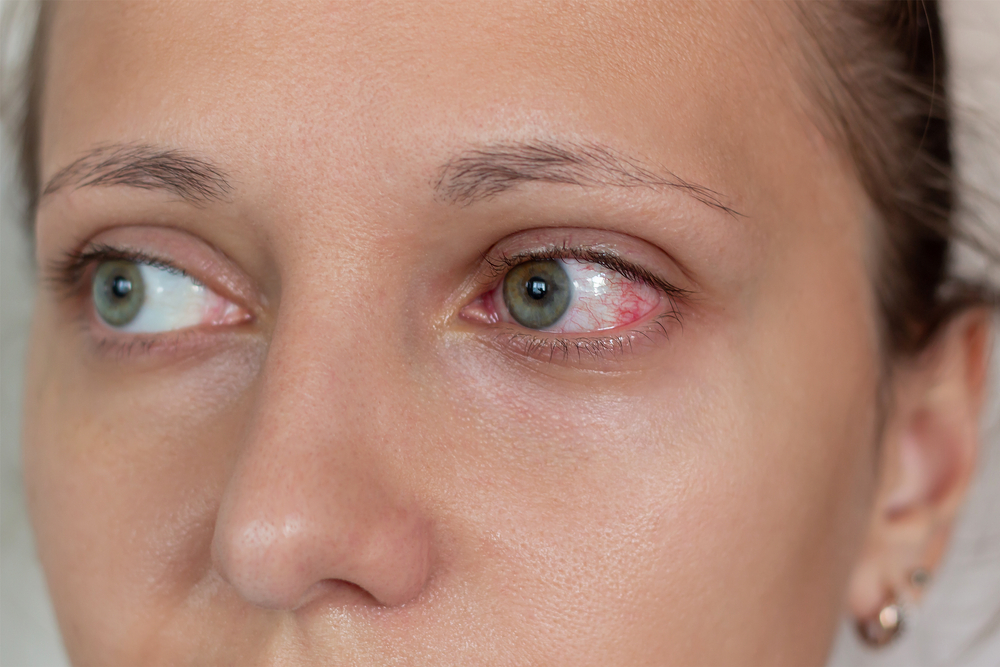Uveitis
Uveitis
Many things can happen to the eye, including conditions like uveitis. The experienced and talented ophthalmologists at Retina Consultants of Orlando are here to treat these conditions and help you feel better.

What is Uveitis?
Uveitis is a condition that can affect the uvea of the eye. The uvea is the middle layer of the eye.
You can also have it affect other structures of the eye, including the vitreous, retina, and optic nerve. Uveitis can be acute, meaning it comes on quickly and goes away after a short time, or it can be chronic and last longer and keep returning.
There is more than one kind of uveitis, including:
Anterior Uveitis
Anterior uveitis occurs when the front of the uvea suffers inflammation. It is the most common kind of uveitis. Patients may experience redness, light sensitivity, and pain.
Intermediate Uveitis
Intermediate uveitis occurs when the middle of the uvea becomes inflamed. Patients with this form of uveitis may see floaters in their vision and have blurry vision.
Posterior Uveitis
Posterior uveitis occurs when the back of the uvea is inflamed. With posterior uveitis, patients may experience vision changes and see blind spots.
Panuveitis
Panuveitis means that all parts of the uvea are inflamed. With Panuveitis, patients experience various symptoms like eye pain, changes to their vision, and redness.
What Causes Uveitis?
Many things can cause uveitis. This can range from autoimmune disorders, infections to the eye, and trauma to the eye. Although rare, uveitis can also occur even without a known cause.

Does Uveitis Have Signs or Symptoms to Look for?
The signs and symptoms of uveitis depend on which part of the uvea is inflamed. However, the most common signs and symptoms associated with uveitis include the following:
If these symptoms sound familiar, you should let your eye doctor know. Most cases of uveitis require treatment and can lead to severe complications if left untreated, like permanent vision loss, cataracts, or glaucoma.
How Do You Treat Uveitis?
How your eye doctor will choose to treat uveitis depends on what’s causing it and the severity of the inflammation you’re experiencing. They may recommend:
Steroid Eye Drops
Steroid eye drops are among the most common ways to treat uveitis. Steroid eye drops can help reduce inflammation and make you more comfortable. If you’re on these eye drops, you’ll likely take them for several weeks or months to treat inflammation.
Oral or Intravenous Steroids
Another way of treating uveitis is with oral or intravenous steroids. These steroids are more powerful than eye drops alone. Your ophthalmologist will only put you on these if you have a severe case of uveitis that steroid eye drops are not improving.
Immunosuppressants and Biologic Agents
Immunosuppressants and biologic agents can help treat uveitis by suppressing your immune system. Suppressing the immune system can be a way of reducing inflammation due to uveitis.
Surgery
If uveitis leads to the formation of cataracts or glaucoma, surgery may be necessary. A surgical procedure can remove a cataract and treat glaucoma while preventing further damage to the eye.
Other Treatments
If uveitis is caused by something else, you may need other medications. You will take an antibiotic or antiviral medication if uveitis is due to an infection.
Or, if an autoimmune condition causes uveitis, you will also treat the autoimmune disorder to reduce inflammation.
Local Steroid Injections
Periocular or intraocular steroid can be considered in the following clinical scenarios[3]:
- severe unilateral uveitis
- uveitis complicated by macular edema
- to supplement systemic therapy or when systemic therapy is contraindicated
- poor patient compliance with topical or systemic therapy
Do you need treatment for uveitis? Schedule an appointment at Retina Consultants of Orlando in Altamonte Springs, FL.
